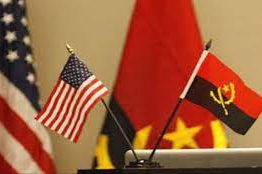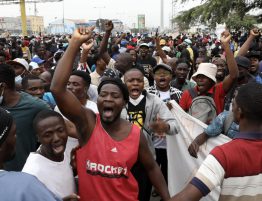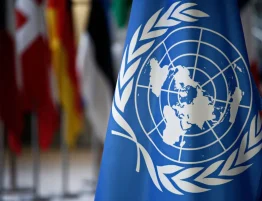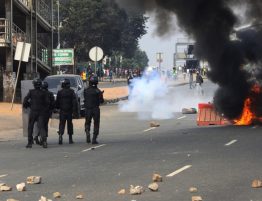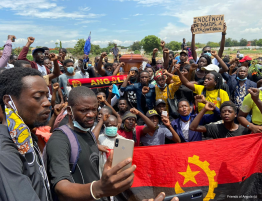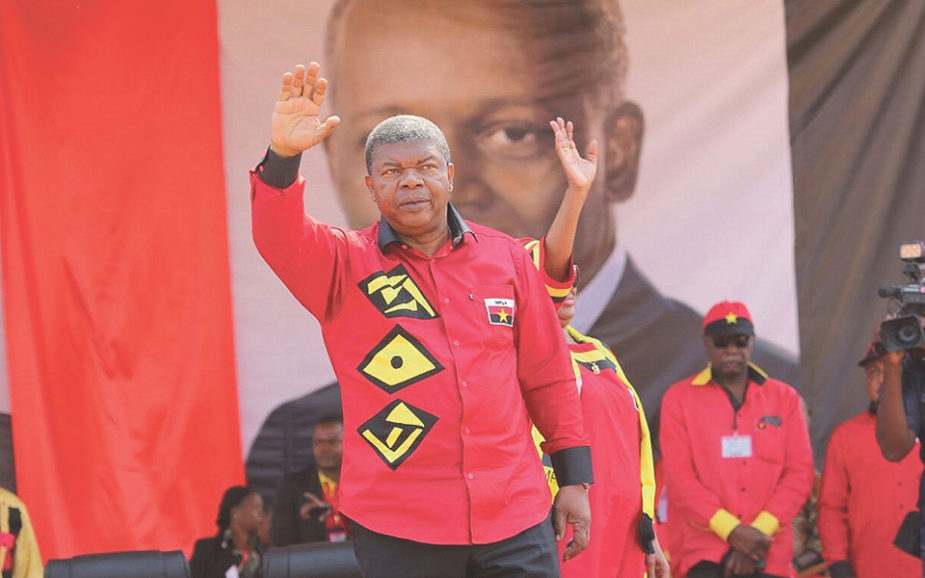
By Communal News
The measure does not cover quarantined citizens and inter-provincial travel will continue to be banned after Sunday.
The mandatory quarantine is maintained for citizens who come from countries with community circulation of the virus and for professionals exposed to risk.
The presidential decree suspends a series of individual rights.
Angolan President João Lourenço extended the state of emergency for another 15 days on Thursday, from 00:00 on Saturday until 23:59 on April 25. The presidential decree that extends the period of a state of emergency introduces some changes, such as the one regarding informal markets and street vending, which are only open on Tuesdays, Thursdays and Saturdays, from 6:00 am to 1:00 PM.
The cemeteries also start to operate between 8:00 and 1:00 PM, for ordinary funerals. The afternoon will be reserved for funerals of eventual deceased by COVID-19. Another of the changes introduced by this decree is the suspension of the provincial health fence for two days, April 11 and 12, for the return of citizens who are stranded outside the province of their residence.
The return to the 17 provinces will be made by road transport, in an operation to be facilitated by the public transport companies, also subject to the reduction of their capacity for a third of passengers. For the province of Cabinda, travel will be made by air via TAAG.
The measure does not cover quarantined citizens, and inter-provincial travel will continue to be banned after Sunday. A declaration issued by the employer, which must be accompanied by a service pass, will also be required by those authorized to work. This is so that the police authorities can identify and separate citizens who are authorized from those who are not authorized to move during the period of emergency.
The mandatory quarantine is maintained for citizens who come from countries with community circulation of the virus and for professionals exposed to risk. The presidential decree suspends a series of individual rights, including the inviolability of the home, property and economic rights, the right to move, the freedom of meetings and worship, as well as prohibiting the movement and permanence of citizens on public roads.
Movement is only allowed for the acquisition of essential goods and services, health issues, transportation of goods, among others previously denied. Commercial and industrial units, which provide essential goods and services and those that operate with furnaces at high temperatures, will continue to operate. The workers of these companies, reduced to one-third of the total, are obliged to present, to the authorities, the employer’s credentials and respective service passes.
Another novelty for the next 15 days is the obligation for any solidarity action to be carried out through the organs of the local government of the State. Maritime navigation for recreational and leisure purposes will also be suspended, which was not contemplated in the previous regulation.
Religious services, sports competitions, schools, universities, establishments selling non-food products, bars and restaurants will continue to be suspended. Mandatory tests will also be imposed “for specific cases,” and citizens cannot refuse to take them.



